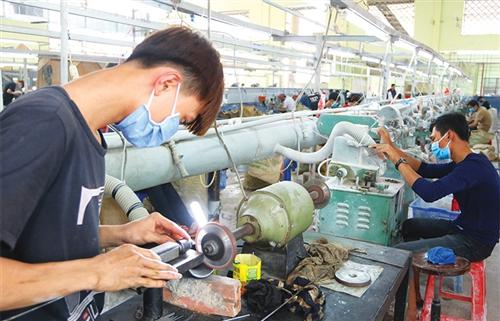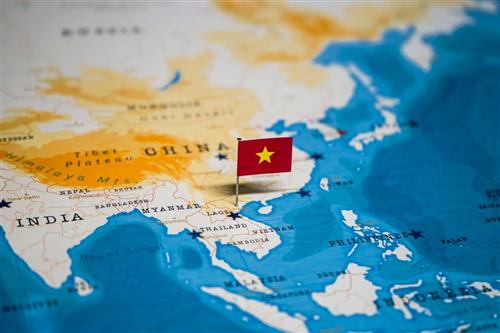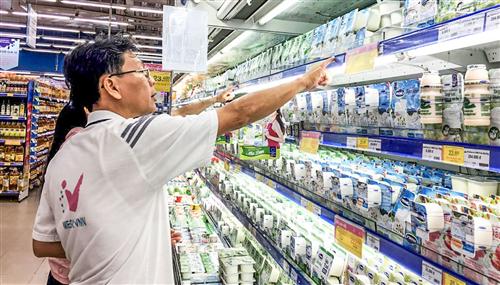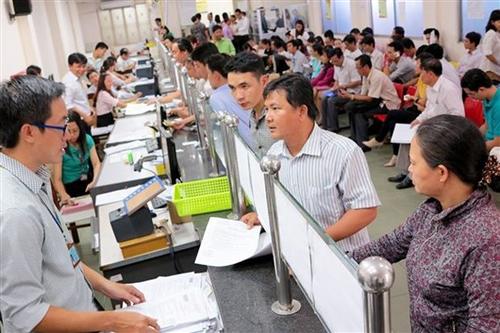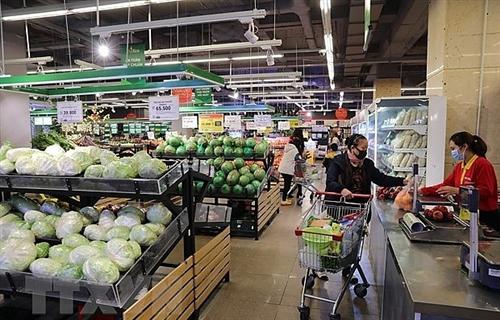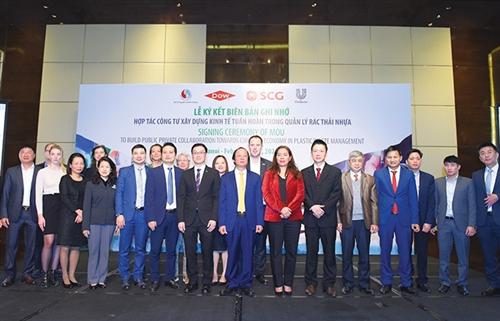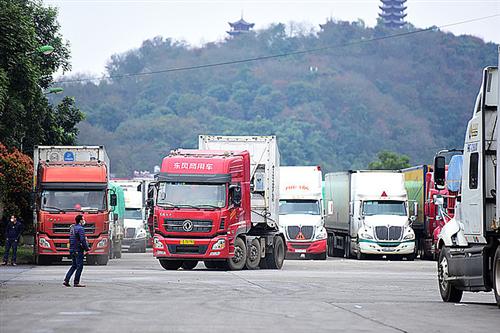SMEs active in finding solutions to cope with COVID-19
SMEs active in finding solutions to cope with COVID-19
Small- and medium-sized enterprises (SMEs) in Ho Chi Minh City have proposed different measures to curtail the impacts the COVID-19 epidemic has on their business at a seminar held on February 29 in Ho Chi Minh City.
At the seminar organised by the Ho Chi Minh City Union of Business Association (HUBA) on February 29 on coping with the COVID-19 epidemic, SMEs shared their difficulties and discussed solutions to share with the community and suggested avenues for local authorities to help them out.
Tran Tan Thien, general director of Hello 5 Coffee JSC, expressed that at the end of 2019, his company received a number of large orders from China, but soon after the COVID-19 outbreak, all orders were cancelled. In the domestic market, Hello 5 Coffee is also suffering losses as sales reduced sharply due to fear of the epidemic among customers.
According to Chu Tien Dung, chairman of the HUBA, the COVID-19 epidemic outbreak in China is causing damage for Vietnamese enterprises.
“China is a major trading partner and shares a border with Vietnam. A great part of the raw materials used for production by many key Vietnamese industries and companies is mainly imported from China. Therefore, when the epidemic broke out and cross-border trade was interrupted, not only exports to China were halted, many enterprises also ran into a shortage of raw materials for production,” Dung said.
It is noteworthy that when the disease spread to South Korea and Japan, the damage to Vietnamese enterprises grew because these are the top importers of Vietnamese products.
“If the epidemic lasts for a long time without control measures, the losses of enterprises will be enormous, some small enterprises may even have to close," Dung said.
Finding ways to adapt
According to Dung, HUBA had previously suggested measures to local authorities on behalf of its members to support enterprises, such as providing tax exemptions or cutting export-import procedures.
However, enterprises themselves must find ways to alter their business, securing new supply lines and approaching new output markets, Dung told VIR at the sidelines of the seminar.
One of the solutions applicable right now, put forward at the seminar by Dung, is to improve the manufacturing sector from exporting raw to processed products, especially when it comes to agricultural products.
“Deeper processing will not only help material producers have a stable consumption market but will also increase product value and branding for enterprises,” he emphasised.
Sharing the same view, Tran Dinh Thien, member of the government's Economic Advisory Group, said that the immediate task is now to mobilise the nation, from central authorities to local people, to fight against the epidemic.
“If the epidemic cannot be brought under control, it will have much bigger consequences and damage to the whole society,” Thien said.
However, the COVID-19 is also an opportunity for enterprises to take a closer look at their business and leave behind the mindset of following the easy way out.
“In the past, China was considered an easy market, so many enterprises felt little need to develop their other markets or improve the quality of their products. Consequently, when in 2019, China changed its standards and import policies, all of a sudden many Vietnamese products could no longer be exported – and when the COVID-19 broke out, trade was interrupted even further, backing Vietnamese enterprises who depend a great deal on the Chinese market into the corner,” Thien added.
In addition to supportive solutions from the government and ministries, Thien said that enterprises must re-define their long-term development strategies because support solutions are only effective in the short term and the epidemic is only one of the risks that enterprises must face.
Accordingly, enterprises must assess the exact market demand, their manufacturing capacity, and resources, actively finding new markets and pushing up the use of new technologies and researching and developing products of higher value.
“When enterprises can flexibly adapt to risks, they will suffer less damage and supportive solutions can be more effective,” Thien said.

Tran Thi Kim Cuc, vice director, Department of Tour Business, Vietravel
|
China used to be a lively market for domestic customers. However, since the outbreak of the COVID-19, this market has been no longer attractive, which partly affects Vietravel's business. We know the first thing we must do is keeping our customers calm. Besides applying the necessary countermeasures, we are co-operating with Baominh Insurance Corporation to protect affected customers' rights.
Furthermore, Vietravel has connected with other companies such as Vietjet, Vietnam Airlines, and Bamboo Airways to take customers on tours with preferential prices that are only 20-50 per cent of the original price. In addition, we have ceased our package tours to harmed areas. Recently, we have joined other travel companies in Can Tho, Khanh Hoa, Danang, and Hanoi in the "I'm safe" campaign to let people know that Vietnam is a safe place for visitors.
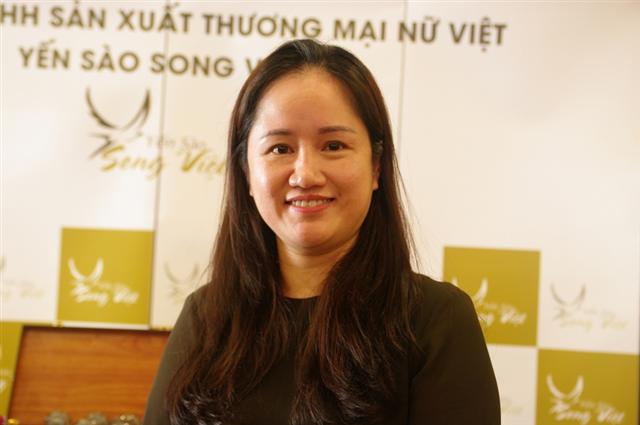
Luong Thi Thu Huong, CEO, Nu Viet Production Trading Co., Ltd.
|
Exports to China account 60-80 per cent of our sales. Since the beginning of the year, our revenue has sharply declined because of the impacts of the virus. Therefore, we had to start focusing on the domestic market and find new markets like Thailand or Taiwan. We have never focused on distribution in Vietnam, which means we have to work very hard now to make our brand name known. In Vietnam, we also conduct business online, but we prefer customers to directly come and try our products, which is very difficult in this season.

Le Huu Nghia, general director of the Le Thanh Trade and Construction Co.,Ltd, the developer of Ladalat Hotel
|
COVID-19 has a strong impact on the tourism sector. Currently, 95 per cent of hotel reservations were cancelled.
Firstly, many economic experts suggested opening new flights and new markets and giving big discounts to tourists and hotel visitors. I think, however, this is not the way to go because advertising and promotion programmes are only effective under normal circumstances when there is actual demand to travel. Due to the epidemic, nobody dares to travel, and no amount of promotions will change their minds. Even if we offer them free tour programmes, they would not come.
As a hotel owner,I would rather close my hotel to maximally reduce losses rather than giving out discounts to woo visitors.
Secondly, I think the Vietnamese government should impose visa exemptions for visitors from more countries to encourage visitor numbers when the epidemic is over. I also suggest the government to consider reducing interest rates for enterprises, especially those suffering from direct losses caused by the epidemic. Apart from that, I also suggest the government to subsidise social insurance for workers at least for one quarter.



